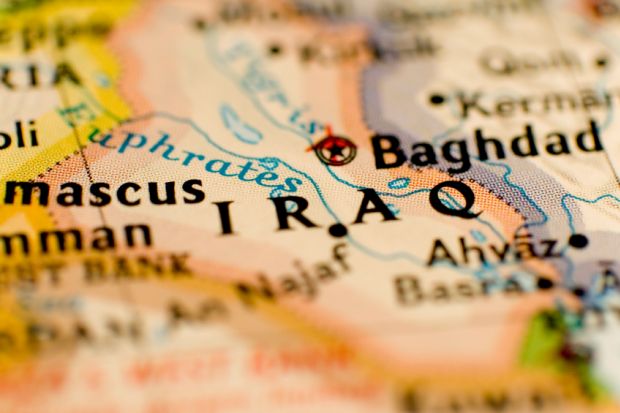Come to our MENA Universities Summit from 2-4 February 2016
The American University of Iraq, Sulaimani, follows an American model, with instruction in English, a general education requirement in the first two years of study, and a four-year baccalaureate degree upon completion.
However, the institution itself - a private, non-profit liberal arts university - is based in the Kurdish Region of Iraq. It was founded in 2007, graduated its first class in 2012, and currently has nearly 1,400 students.
Perhaps unsurprisingly, a prefacing year of English language study is commonly required since the faculty are primarily American, English speakers or other nationals with US degrees. Non-liberal arts majors are offered, but liberal arts requirements are met - primarily in the first two years of general education study.
To me, the value of a liberal arts university in Iraq parallels the value of a liberal arts education in any setting.
Rather than a total focus on a vocational or skills based education, it requires a broad base of course work in the humanities, the arts, social sciences and general sciences. Among the benefits a liberal arts education provides are critical and analytical thinking skills, effective writing competency, the capacity to draw on a wider scope of general knowledge, including the sociocultural dynamics in human affairs and the historical, political contexts of regional and world developments.
On the one hand, the challenges of this model of higher education comes from it being atypical in a region where rote learning and vocational focus is standard fare.
Helping students understand the value added of course requirements, beyond their specific skill based curriculum, is a challenge that comes with attracting and enrolling students in a different approach to higher education. Public education throughout the Middle East focuses more narrowly on skill development, not on general education at the tertiary level. Students often come to understand its value only as their education proceeds.
On the other hand, the success of this model of higher education can be seen in the high employment rate of AUIS graduates in the Kurdish Region of Iraq. Over 90 per cent of AUIS graduates achieve employment in a short period of time with salaries above the general range.
There is a second value, which cannot be quantitatively measured.
In mixing students of various ethnic and religious backgrounds in general education courses which entail discussion and debate on topics of social, political and cultural significance (and which are not subject to precise validation by equation or formula) encourages dialogue and connection across ethnic, gender and cultural differences. The newly established Center for Gender and Development Studies, for example, allows for focus and debate on subjects of contemporary societal relevance, in an academic context.
I believe that a liberal arts education is particularly needed in Iraq to prepare the next generation of leaders to think broadly, analytically and critically in a region of the world that will need its brightest and best educated citizens to lead their countries to a better future.
In a region fraught with turmoil and violence, where ethnic and religious differences are being exaggerated and inflamed, education is the hope of the future. It not only brings people together across identity differences, but also gives them the tools to imagine and work toward a more peaceful and positive future.
Jill Derby is a cultural anthropologist and higher education governance specialist currently serving as the vice-chair of the Board of Trustees of the American University of Iraq, Sulaimani. She is speaking at the THE MENA Universities Summit in February.
Register to continue
Why register?
- Registration is free and only takes a moment
- Once registered, you can read 3 articles a month
- Sign up for our newsletter
Subscribe
Or subscribe for unlimited access to:
- Unlimited access to news, views, insights & reviews
- Digital editions
- Digital access to THE’s university and college rankings analysis
Already registered or a current subscriber?




